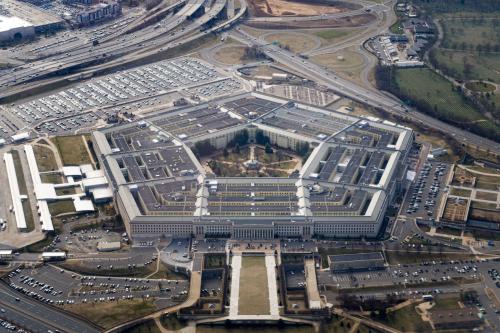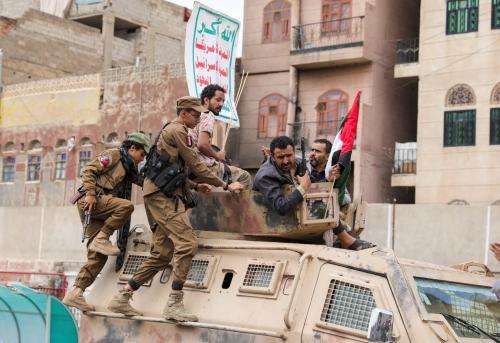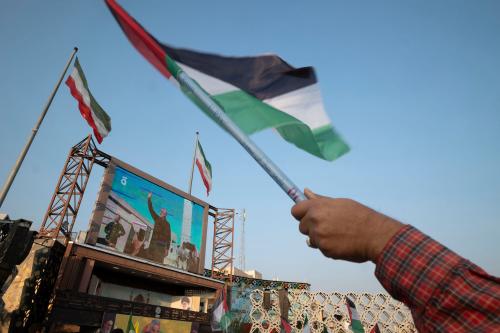Ever since the Chinese military philosopher Sun Tzu outlined principles required for the conduct of war in the fifth century B.C., military strategists have opined on what those principles are, and whether currently accepted principles need revision. A strong case exists for the principles laid by the 19th century Prussian military theorist Karl von Clausewitz: mass, objective, offensive, surprise, economy of force, maneuver, unity of command, security and simplicity. Although there is a realization that Clausewitz’s principles do not cover every situation a modern military must face such as humanitarian crisis or counterinsurgency – the actions of ISIS to date – demonstrate Clausewitz was right.
It is unlikely that a group of renegade jihadist extremists would abide by the principles, or even be aware of them; however, the invasion of Iraq by ISIS is a textbook example of the timelessness of the principles and a worthy example of their effectiveness. ISIS’ successes demonstrate how adherence to the principles can lead to success on the battlefield. Denying ISIS the ability to adhere to the principles will likewise lead to their defeat.
Mass: Concentrate combat power at the decisive place and time.
Whether or not he ever actually said it, Confederate army general Nathan Bedford Forest’s aphorism, “get there the firstest with the mostest,” sums up the principle of mass in action. Since its inception, ISIS has applied the level of force needed in swarm-like fashion to accomplish its objectives. They have not spread too thin and have kept forces focused. The massing of effects in their march through Anbar Province in a short period was a jihadi version of shock and awe. Lately, ISIS’ ability to mass has been challenged by coalition airstrikes. ISIS recently overcame the airstrikes and employed the concept of mass when it reoccupied a portion of Baghdadi with a few hundred fighters; and when they ignored mass they failed, as at the Ayn al-Asad air base with fewer than 50 fighters. As the coalition continues to act, ISIS’ ability to mass forces will be further challenged from the air, and when they disperse they will be vulnerable on the ground.
Objective: Direct every military operation toward a clearly defined, decisive, and attainable objective.
ISIS established objectives at the tactical, operational and strategic levels. Tactically, ISIS initially focused on securing open passage between Syria and Iraq, then gaining towns along the Euphrates River, before focusing on larger towns along the Tigris such as Mosul. Operationally, ISIS vowed to take on and defeat Western sympathizing governments in the Middle East, with the strategic goal of establishing a caliphate. All efforts to date have been in support of stated objectives. It is when ISIS loses focus on its objective that it will fail. ISIS will learn that maintaining and governing territory entails challenges that will continue to compete for resources and endanger their ability to press the fight.
Offensive: Seize, retain, and exploit the initiative.
The speed and drive ISIS displayed in its march to Baghdad are reminiscent of Sherman’s march to the sea in the American Civil War. To the international community, ISIS appeared out of nowhere. ISIS raced to Baghdad while the United States continued to implore Iraq to respond. What started as a local Al Qaeda branch quickly evolved into a bloodthirsty expansionist movement. ISIS’s ability to maintain the pressure was classic offense. It maintained the momentum far longer than its manpower and weapons should have allowed. When ISIS seizes the offensive they are most effective; however, it is ISIS’ lack of a strong logistics arm, and the other elements of combat power such as an Air Force or a Navy, that prevent it from maintaining the offense and waging the “total war” that students of Clausewitz know. Without those tools, ISIS future is limited at best.
Surprise: Strike the enemy at a time, at a place, or in a manner for which he is unprepared.
As evidenced by the mythical Trojan horse, surprise and subterfuge frequently prove utility in battle. Normandy, the Tet Offensive, Inchon and now the ISIS roll through Syria and Iraq demonstrate the continued value of surprise. ISIS learned from history: What started out as a few guys in pickup trucks rapidly thwarted a military that was armed, trained and funded by the United States. It is doubtful if ISIS can maintain its ability to surprise on a large scale, due to the global intelligence focus on its current activities.
Economy of force: Allocate minimum essential combat power to secondary efforts.
Early estimates put the number of ISIS fighters at fewer than 10,000; the Iraqis had a force of 250,000. ISIS took the city of Mosul with only 800 fighters, routing an Iraqi force of 30,000. ISIS’ ability to co-opt disillusioned Sunni tribes resulted in spectacular success with minimal force. The hard lesson for ISIS is the realization that defending territory is significantly more manpower-intensive than taking territory.
Maneuver: Place the enemy in a position of disadvantage through the flexible application of combat power.
In a style reminiscent of that advocated by Sun Tzu, ISIS has attacked its enemy where it is weakand avoided the enemy where it is strong; ISIS correctly surmised that a strike at Mosul would be well within its capabilities even though it was vastly outnumbered. Likewise, ISIS did not penetrate into areas such as Baghdad, where it believed resistance is strong. This has limited their losses so far, and allowed them to maintain large swaths of land.
Unity of command: For every objective, ensure unity of effort under one responsible commander.
Despite its unconventional appearance, ISIS organized a strict organizational hierarchy that rivals anything an experienced army might put together. Distinct chains of command exist for Syria and Iraq with separate advisors for recruitment, security and finance. No one in ISIS questions Al-Baghdadi’s supremacy. The dedication to the unity of command played a decisive role in ISIS’s break off from Al Qaeda, ensuring unity of purpose as well.
Security: Never permit the enemy to acquire an unexpected advantage.
Soon after airstrikes against ISIS commenced, ISIS adapted and denied the initiative to those allied against them. While ISIS has seen the Kurds take back the city of Kobani, it is still a long way from being defeated in the region. Recent actions by ISIS, such as the immolation of a Jordanian pilot and attacks in North Africa, may have awakened an anti-ISIS movement in the Middle East that will prevent ISIS from maintaining its security.
Simplicity: Prepare clear, uncomplicated plans and clear, concise orders to ensure thorough understanding.
ISIS has been credited with employing sophisticated tactics, yet this gives ISIS far too much credit. ISIS’ ability to relate purpose and end-state – known in the military as commander’s intent – provides a level of flexibility lost in most militaries. Simple tactics, concise operations and a coherent strategy eased their route of Eastern Syria and Western Iraq.
While it is debatable whether ISIS can continue to expand far beyond its current hold, its ability to use relatively untrained recruits to accomplish so much in a short period of time is testament to the employment of the principles of war, knowingly or not. ISIS will ultimately be stopped when coalition strategy denies ISIS’ successful implementation of the timeless principles of war.
This opinion originally appeared in Real Clear Defense.



Commentary
Op-edISIS and the principles of war
April 27, 2015